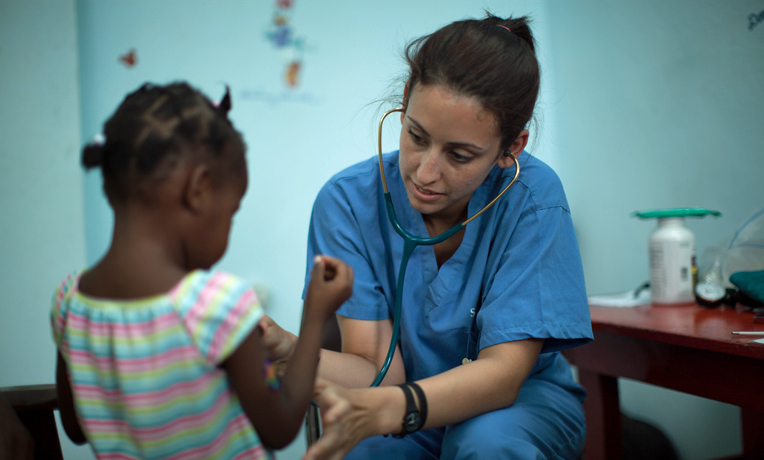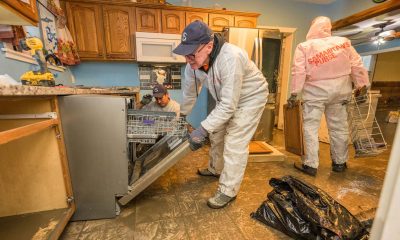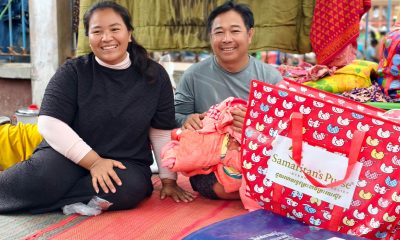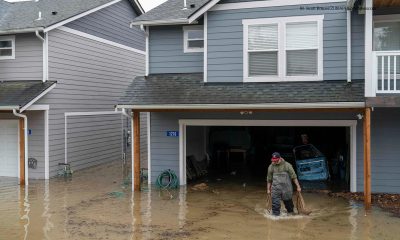After volunteering in Haiti several times since the 2010 earthquake destroyed the country, a medical missionary felt the burden of the things he had seen. With God’s grace, he was able to turn his pain into thanksgiving.
Tim Mosher was one of many medical volunteers to travel to Haiti with Samaritan’s Purse during the first weeks after the earthquake devastated the country and has since returned many times.
In January of 2010, a catastrophic earthquake in Haiti stunned the world. Like so many Christian medical professionals, I wept daily with the desire to be there assisting the hurting millions.
Miraculously, God made a way for a handful of us from my hometown in Ohio to arrive there via private jet at the end of the second week after the quake. The details of this opportunity were almost impossible to imagine, and several steps of faith were necessary to make this trip happen since we had no sending agency.
By the second day on the ground, I found myself working in the triage area of the University of Miami Field Hospital at the airport. On the next day, I was in charge of the area and given additional responsibility for the pre-op patients. The scene was quite chaotic but controlled.

Doctors and nurses traveled with Samaritan’s Purse to care for people in Haiti after the 2010 earthquake and a deadly cholera outbreak.
Having 29 years of experience in fire, EMS, and ER nursing, I felt completely in my element. There was never a time in my life I felt more like God’s perfect timing and purpose were on my teammates and me. Making minute-by-minute decisions came naturally, and I didn’t get rattled. I was made for this moment.
In spite of the euphoria of purpose and meaning, there was a dark and painful reality being planted in my being. I managed to only get seven hours of sleep in six days. The constant screaming of children during the day pierced my efforts to sleep at night. Watching nurses and doctors crack under the pressure was something I had never seen before.
Nurses often burst out of the medical tents in tears; one ran off wild-eyed, stuttering into the airport darkness. Doctors broke down daily while discussing difficult ethical decisions; one left the triage area within two hours of arriving because she was unable to cope. Seeing more traumas in one week than I had seen in my entire career became a heavy load I carried home.
In the following weeks, I pondered leaving the medical field, but I felt the Lord telling me that walking away from my experience and abilities would be wasting the gifts he built into me over many years. So I got back on the horse and returned to Haiti with Samaritan’s Purse, not once, but several times over the next few years.
The joy of serving the poorest and sickest of people renewed my hope and desire for future medical missions. However, the pain of that initial experience was always in the background, surfacing occasionally as sights, sounds, and deep regrets over selfish thoughts. I did not know how to shake it, and confiding in others seemed impossible. Even though many Samaritan’s Purse field staff I worked with had been through similar or worse things, I was reluctant to reach out to them.
Giving Pain to God
In February of 2013, I returned to Haiti once again to work in the Samaritan’s Purse slum clinic with two volunteer nurse practitioners. As we became acquainted and coalesced as a team, I learned that they too had experience with similar high-pressure, high-suffering crisis mission events. They understood just how I felt and the effect it has in our soul and spirit. They knew exactly what it was like to walk through those valleys. It seemed God was providing an opportunity to find a way to lay aside my weight of pain and guilt—here in Haiti, where it all started three years ago.

Tim Mosher first traveled to Haiti to care for sick and injured people only a couple of weeks after the earthquake hit.
One evening after a long clinic day, I mentioned to my teammates that I intended to have a brief ceremony the next evening to deal with my anguish. I was relieved and thankful when they humbly offered to be there with me if I wanted; I was too embarrassed to ask. This was not really a moment when I wanted to be alone. I wished more than anything that my wife could be there, but she couldn’t.
In preparation, I sat up late into the night writing out all of the individual things that were part of this heavy weight. That’s when the healing really began. I put down specific items of the searing sights and sounds that plagued me. I wrote about things I failed in as a believer in a faithful and just God and the shame I felt.
I let the tears stain the pages. As a supposedly strong and courageous man, I had never done anything remotely like this in my life. Ceremony and ritual were rarely inspirational for me.
The next evening came, and the three of us went to the outer perimeter of the camp where there was a pile of construction dirt. As my friends watched, I read through the entire paper as a prayer to the Lord—every point of pain. I then went alone to the pile, dug out a hole, and placed the papers into it. I lit a match and began to burn the papers.
This act was to signify that I was leaving my pain and guilt behind and I was receiving God’s grace to heal and forgive. As I prayed and watched the paper burn down, my heart began to feel at peace and rest. This was the moment I had needed for so long.
I covered the ashes and returned to my friends, where we shared in the camaraderie of suffering servants. How I thank God for them in that moment.

Tim found camaraderie with other medical professionals in Haiti who had experienced similar traumatic experiences.
While we medical missionaries collect many memories that are not possible to forget, God enables us to endure. The baggage of experiences we carry around sometimes comes open and memories spill out. I suppose some are hardier than others in coping, but we’re each unique and must live with the temperament God has given us.
It is best to embrace that pain and offer it back to God, thanking Him that He allowed us to share in some way with the suffering of humanity in His name. There is nothing greater than being the hands and feet of God to the “least of these.”






